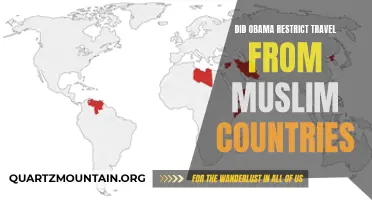
After the oath ceremony, when individuals become officially naturalized citizens of a country, they may wonder about their rights and restrictions. Can they travel freely? Are there any travel restrictions imposed upon them? This question often arises as individuals eagerly anticipate the newfound freedom of movement that comes with citizenship. In this article, we will delve into the topic of travel restrictions after the oath ceremony and explore what limitations, if any, exist for naturalized citizens.
What You'll Learn
- Are there any restrictions on traveling immediately after an oath ceremony?
- Are there any specific documents required for traveling after an oath ceremony?
- What are the recommended steps to take before traveling after an oath ceremony?
- Are there any potential issues or delays that can arise when traveling after an oath ceremony?
- Are there any specific rules or guidelines for international travel after an oath ceremony?

Are there any restrictions on traveling immediately after an oath ceremony?

After the long and often arduous process of obtaining U.S. citizenship, the final step is the oath ceremony. This is a momentous occasion where new citizens pledge loyalty to their new country and receive their naturalization certificates. However, many new citizens may wonder if there are any restrictions on traveling immediately after the oath ceremony. This article will explore the general guidelines and considerations for traveling post-oath ceremony.
First and foremost, it is important to note that once the oath ceremony is complete, individuals officially become U.S. citizens. This means that they are entitled to all the rights and privileges that come with citizenship, including the ability to travel freely. As U.S. citizens, they are no longer subject to the same immigration restrictions that apply to non-citizens.
With that said, it is still essential to have the appropriate travel documents in place. If a new citizen plans to travel internationally, they will need to obtain a U.S. passport. The passport application process can take several weeks, so it is advisable to apply as early as possible. The U.S. Department of State is responsible for issuing passports and provides detailed instructions on their website.
In addition to a passport, it is also advisable to carry the naturalization certificate received during the oath ceremony. This document serves as proof of citizenship and may be required during the re-entry process when returning to the United States. It is recommended to make copies of the certificate and store them in a secure location while traveling, in case the original is lost or stolen.
Aside from the necessary travel documents, it is also crucial to consider practical factors when planning travel after the oath ceremony. It is advisable to allow for some time to adjust to the new status as a U.S. citizen before embarking on a trip. This can include updating personal information, such as addresses and contact details, and notifying relevant authorities of the change in citizenship status.
It is also important to remember that certain countries may have their own entry requirements, such as visas or vaccination certificates. It is recommended to check the travel advisories and entry requirements for the specific destination before making any travel arrangements. The U.S. Department of State provides up-to-date information on travel advisories and country-specific requirements on their website.
Lastly, it is always a good idea to have appropriate travel insurance in place when traveling. This can provide coverage for unexpected events such as medical emergencies or trip cancellations. Insurance policies can vary in coverage and cost, so it is advisable to compare different options and choose the one that best suits individual needs.
In conclusion, there are generally no restrictions on traveling immediately after an oath ceremony for new U.S. citizens. However, it is essential to have the necessary travel documents, including a U.S. passport, and to be aware of any specific entry requirements for the desired destination. Taking some time to adjust to the new citizenship status and ensuring adequate travel insurance can also contribute to a smooth and enjoyable travel experience.
Understanding the Travel Restrictions to Vietnam: What You Need to Know Before Planning Your Trip
You may want to see also

Are there any specific documents required for traveling after an oath ceremony?
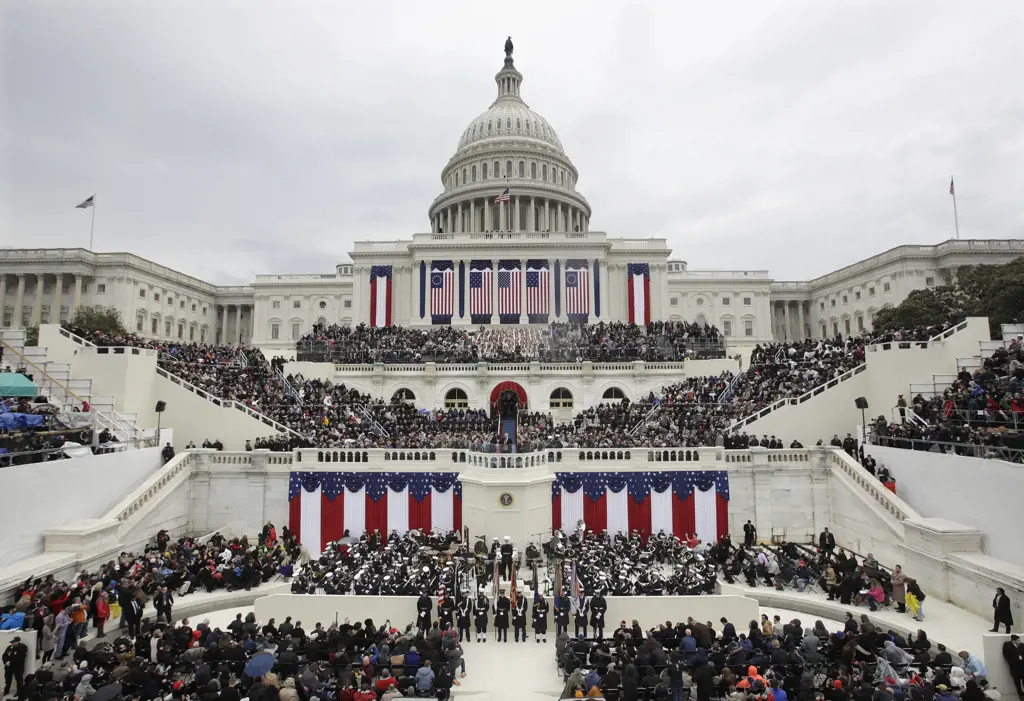
After going through the naturalization process and taking the oath of allegiance, new U.S. citizens have the privilege to travel freely in and out of the country. However, there are certain documents that they need to have in order to ensure a smooth travel experience. Here are some important documents that are required for traveling after an oath ceremony:
- U.S. Passport: The most important document for international travel is a U.S. passport. After naturalization, individuals can apply for a passport by filling out an application, providing proof of U.S. citizenship, submitting a photo, and paying the required fees. It is recommended to apply for a passport well in advance of any planned travel, as the process can take several weeks.
- Certificate of Citizenship: In addition to a passport, new citizens should also carry their Certificate of Citizenship as proof of their U.S. citizenship. This document is issued by the U.S. Citizenship and Immigration Services (USCIS) and serves as an official record of a person's naturalization. It is advised to keep the original certificate in a safe place and carry a copy while traveling.
- Permanent Resident Card (Green Card): Although green card holders no longer need to carry their green cards with them once they become U.S. citizens, it is still recommended to keep a copy of the green card while traveling. This is especially important for those who have recently naturalized and have not yet received their U.S. passport.
- Visa Requirements: Depending on the destination country, new citizens may also need to obtain a visa before traveling. It is essential to check the visa requirements of the country one plans to visit well in advance. The U.S. Department of State's website provides information on visa requirements for different countries.
- Travel Insurance: While not a required document, it is highly recommended to have travel insurance when traveling abroad. This can help cover any unexpected medical expenses, trip cancellation, or lost luggage. It is important to carefully review the terms and conditions of the insurance policy before purchasing.
- Additional Documents: Apart from the above-mentioned documents, it is always a good idea to carry other essential documents such as a driver's license, health insurance information, credit cards, and a copy of the itinerary. It is also recommended to have a list of emergency contact numbers, including the nearest U.S. embassy or consulate in the destination country.
Traveling as a new U.S citizen is an exciting milestone, and having the necessary documents can help make the journey hassle-free. It is important to keep all the documents in a safe place, make copies of them, and carry the originals or certified copies while traveling. Staying organized and prepared will ensure a smooth travel experience after the oath ceremony.
Understanding the SSDI Travel Restrictions and How They May Affect You
You may want to see also

What are the recommended steps to take before traveling after an oath ceremony?
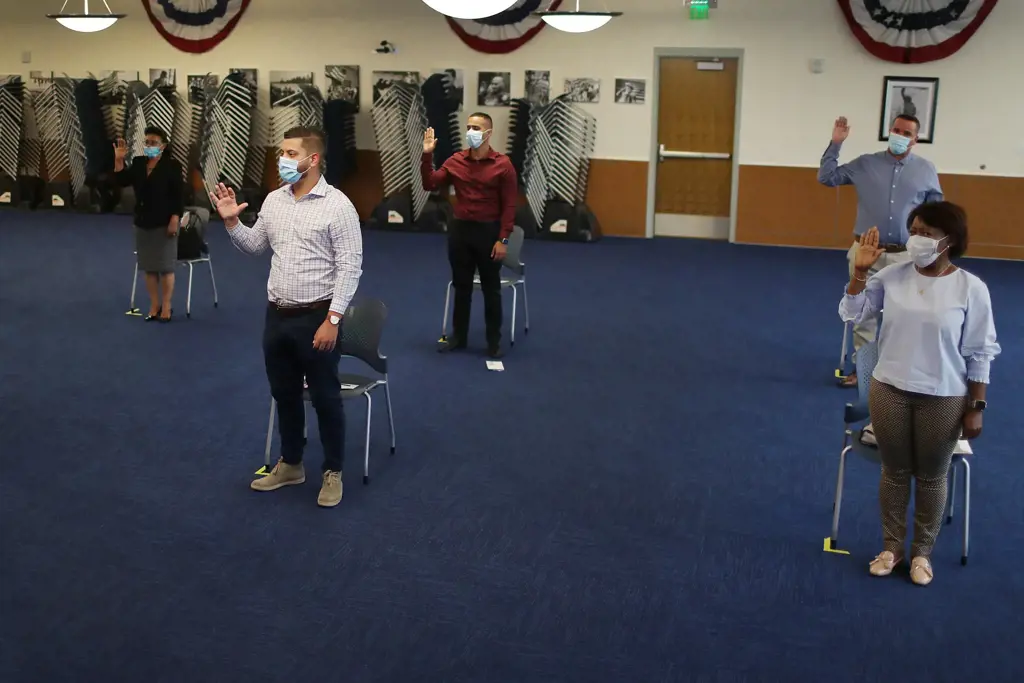
Congratulations on completing your oath ceremony! After all the hard work and anticipation, it's time to start preparing for your upcoming trip. Whether you're embarking on a leisurely vacation, visiting family and friends, or exploring new opportunities abroad, there are a few important steps to take before traveling. This article will guide you through the recommended actions to ensure a smooth and stress-free journey.
- Valid Passport: Before traveling, it is crucial to have a valid passport. Ensure that your passport is up to date and has not expired. If your passport is about to expire, it is wise to renew it well in advance to avoid any last-minute complications. Check the expiration date and make sure it is valid for at least six months beyond your intended return date.
- Visa Requirements: Research the visa requirements of your destination country. Find out if you need a visa to enter and, if so, apply for it ahead of time. Each country has its own visa policies, so make sure to check the specific requirements for your nationality. Some visas may take time to process, so give yourself enough time to complete the application and receive approval.
- Travel Insurance: Consider purchasing travel insurance to protect yourself against any unforeseen circumstances during your trip. Travel insurance can cover medical expenses, canceled flights, lost luggage, and other travel-related risks. Review different insurance policies and choose one that suits your needs and provides comprehensive coverage.
- Health Precautions: Familiarize yourself with the health precautions and vaccinations recommended for your destination. Some countries require specific vaccinations for entry. Consult with your healthcare provider or a travel medicine specialist to determine which vaccinations are necessary and any other health precautions you should take before traveling.
- Financial Planning: Ensure that your finances are in order before embarking on your trip. Notify your bank and credit card companies about your travel plans to avoid any blocks or complications with your cards. Additionally, it's beneficial to have both a backup credit card and some cash in the local currency of your destination. Research the local currency exchange rates and plan accordingly.
- Itinerary and Accommodation: Plan your itinerary and book your accommodation in advance. Having an outline of the places you want to visit and a confirmed place to stay will save you time and provide peace of mind during your travels. Consider researching local customs and traditions, as well as any travel advisories or safety concerns in your destination.
- Packing Essentials: Make a checklist of essential items to pack. Depending on your destination and the purpose of your trip, consider packing weather-appropriate clothing, travel adapters for electronic devices, necessary medications, and any personal items you may need. Don't forget to pack your passport, visa documents, and travel insurance information in a safe and easily accessible place.
- Transportation: Research transportation options at your destination. Determine if you will need to rent a car, rely on public transportation, or hire private transportation services. Familiarize yourself with local transportation systems and schedules to ensure a smooth and efficient travel experience.
- Share Your Plans: Inform a trusted friend or family member about your travel plans, including your itinerary, accommodation details, and contact information. This ensures that someone knows your whereabouts and can reach you in case of an emergency.
- Enjoy and Celebrate: Finally, after accomplishing your oath ceremony, take the time to celebrate your achievement and enjoy your journey. Embrace new experiences, immerse yourself in different cultures, and create lasting memories.
By following these recommended steps, you can have a worry-free and enjoyable travel experience after your oath ceremony. Bon voyage!
Exploring the Impact of Travel Restrictions on Tourism in Guatemala
You may want to see also

Are there any potential issues or delays that can arise when traveling after an oath ceremony?
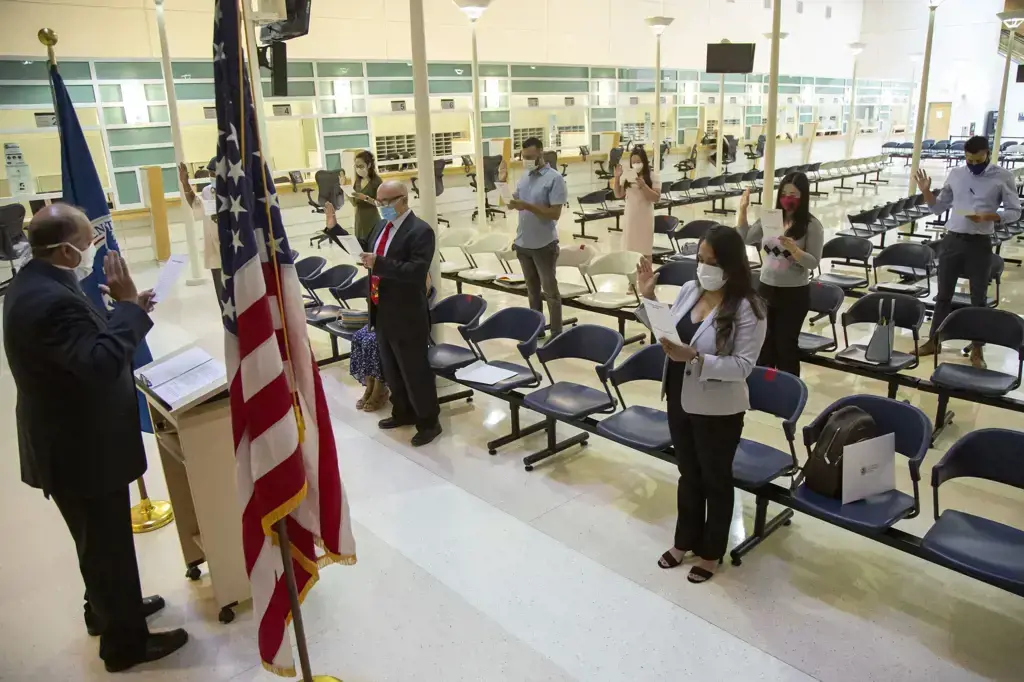
After successfully going through the naturalization process and attending an oath ceremony, obtaining United States citizenship is an exciting moment. Alongside this milestone, individuals often make plans to travel either to visit family or take a much-needed vacation. However, it is important to consider any potential issues or delays that can arise when traveling after an oath ceremony.
One of the main concerns after the oath ceremony is the delay in receiving the Certificate of Naturalization. While some individuals may receive their certificate on the spot, for others, it can take several weeks or even months to arrive in the mail. This delay can cause issues when traveling, as certain countries or airlines may require proof of citizenship.
It is recommended to apply for a U.S. passport as soon as possible after the oath ceremony. A U.S. passport serves as a universally accepted proof of citizenship and can be instrumental in avoiding any travel complications. However, it is important to note that obtaining a passport also takes time, so it is advisable to plan ahead and apply as soon as possible.
Additionally, it is essential to familiarize yourself with the travel requirements of the country you intend to visit. Some countries may have specific visa requirements for U.S. citizens, and it is crucial to obtain the necessary visas before your trip. Researching and understanding the travel regulations of your destination will help avoid any last-minute complications or denials at immigration.
Traveling right after the oath ceremony may also lead to challenges in updating personal information on various platforms. For instance, updating your citizenship status with airlines, frequent flyer programs, and other travel-related accounts may take time. It is advisable to contact the respective organizations and provide them with a copy of your Certificate of Naturalization once received, ensuring a smooth transition in terms of benefits and services.
In some situations, green card holders with pending naturalization applications may choose to travel before the oath ceremony. This decision may raise concerns and potentially result in complications during the inspection process at the port of entry. Traveling outside the United States during this period can be risky, especially if there have been significant changes in personal circumstances or if there are doubts about the eligibility for naturalization. Consulting with an immigration attorney before making any decisions regarding travel is strongly recommended.
While travel plans are often a much-anticipated part of celebrating U.S. citizenship, it is crucial to be prepared and informed about the potential issues and delays that can arise. Applying for a U.S. passport, researching travel requirements, updating personal information, and seeking legal advice if needed are essential steps to ensure a smooth and hassle-free journey after the oath ceremony. With the right preparation, individuals can embark on their travels and fully embrace their new status as citizens of the United States.
Understanding the AAA Travel Restriction Map: Everything You Need to Know
You may want to see also

Are there any specific rules or guidelines for international travel after an oath ceremony?
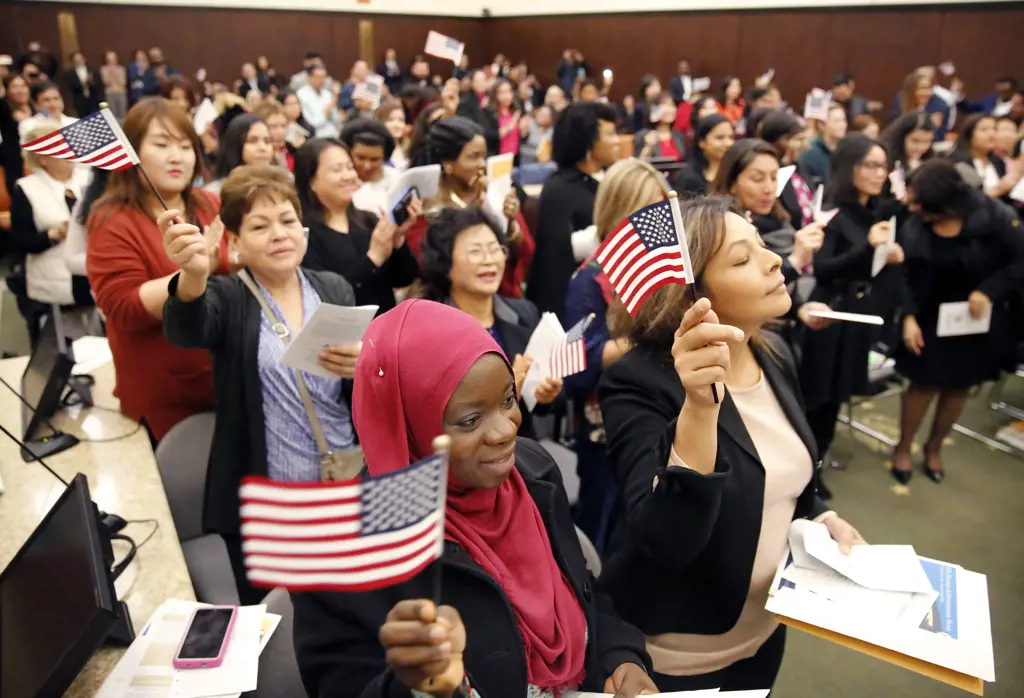
After successfully completing the naturalization interview and oath ceremony, new U.S. citizens may want to travel internationally to visit friends and family or to explore new destinations. However, there are some rules and guidelines that they should be aware of before planning their international travel.
Firstly, it is important for new U.S. citizens to obtain a U.S. passport before traveling internationally. The U.S. passport serves as proof of citizenship and is required for entry into most countries. To apply for a U.S. passport, individuals must complete Form DS-11, provide documentation of U.S. citizenship (such as a naturalization certificate), proof of identity (such as a driver's license), submit passport photos, and pay the applicable fees. It is recommended to start the passport application process well in advance of the planned travel dates as processing times may vary.
Another crucial factor to consider is that some countries require a visa for entry. A visa is an official document issued by the foreign country granting permission to enter for a specified period and purpose. New U.S. citizens should research the visa requirements for the country they intend to visit and apply for the appropriate visa if necessary. The application process and requirements vary from country to country, so it is essential to check the specific requirements before traveling.
In addition to passport and visa requirements, new U.S. citizens should also be mindful of the potential for additional immigration checks upon arrival at their destination. Customs and immigration officers may ask questions about the purpose of the visit, length of stay, and other relevant details. It is crucial to answer these questions honestly and provide any necessary documentation, such as a return ticket or proof of accommodation, if requested.
New U.S. citizens should also familiarize themselves with the rules and regulations regarding re-entry into the United States after international travel. As a U.S. citizen, they have the right to enter the country at any time, but there are certain requirements to be met. It is recommended to carry the U.S. passport while traveling as it serves as proof of citizenship when returning to the United States. Additionally, new U.S. citizens should be aware that they may be subject to customs inspections upon re-entry, and any goods or items purchased abroad may be subject to customs duties or restrictions.
Lastly, it is crucial to research and stay up-to-date on any travel advisories or restrictions that may be in place for specific countries or regions. The U.S. Department of State provides travel advisories for U.S. citizens, which include information on safety and security concerns, entry and exit requirements, and health considerations. It is advisable to check the current travel advisories for the intended destination and to follow any guidelines or recommendations provided.
In conclusion, there are specific rules and guidelines that new U.S. citizens should be aware of when planning international travel after an oath ceremony. It is essential to obtain a U.S. passport, research visa requirements, be prepared for immigration checks, understand re-entry requirements, and stay informed about any travel advisories or restrictions. By following these guidelines, new U.S. citizens can ensure a smooth and hassle-free travel experience as they embark on their new journey as citizens of the United States.
Exploring the Latest Travel Restrictions in St. Martin: What You Need to Know
You may want to see also
Frequently asked questions
No, there are no restrictions on traveling immediately after your oath ceremony. Once you have become a naturalized citizen, you are free to travel domestically and internationally without any limitations.
If you are planning to travel internationally, it is recommended to update your passport to reflect your new citizenship status. You can obtain a new passport by following the application process set by your country's passport office. It is also a good idea to update your identification documents, such as your driver's license or state ID, to reflect your new citizenship status.
As a naturalized citizen, you have the same rights and privileges as a citizen who was born in the country. There are no travel restrictions specifically for naturalized citizens. However, it is important to check the travel requirements and restrictions of the specific countries you plan to visit, as each country may have its own entry and visa requirements. Some countries may also require additional documentation for naturalized citizens, such as proof of citizenship or a visa. It is recommended to research and prepare for your travels ahead of time to ensure a smooth and hassle-free journey.




